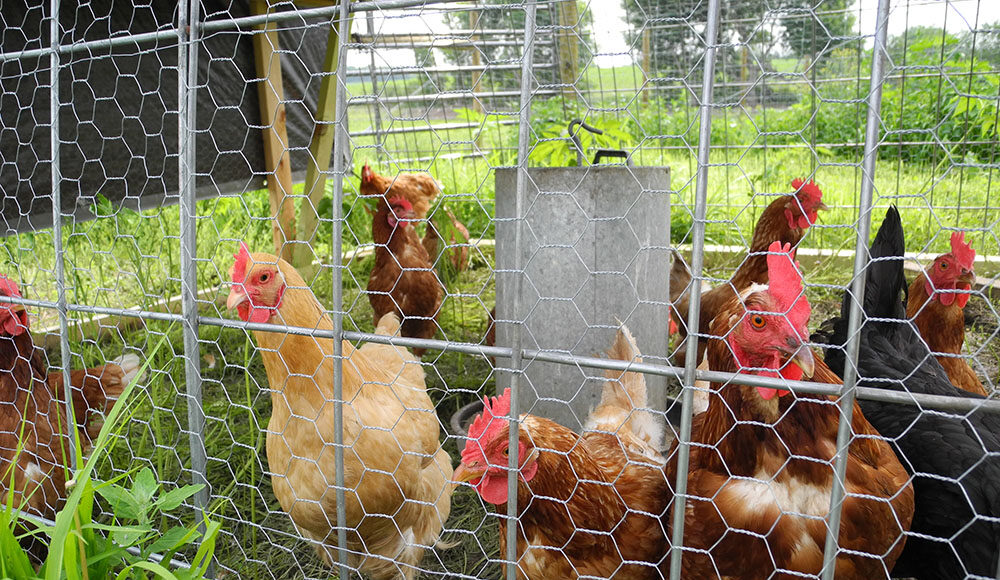In the world of chickens and eggs, the term egg bloom and the reasons why it matters holds significant importance for both experienced and novice chicken enthusiasts. Whether you’re raising a flock for fresh eggs or simply interested in the intricacies of egg production, understanding the concept of the egg bloom provides invaluable insight into maintaining the quality and longevity of your eggs.
The topic of egg bloom is not only fascinating but crucial for anyone who cherishes fresh, healthy eggs. It serves as a natural protective layer, ensuring the eggs are safe and less prone to contamination. Let’s dive deeper into the wonders of the egg bloom and explore why it matters to every poultry keeper.

What is Egg Bloom?
The egg bloom, also known as the cuticle, is a thin, natural coating found on the surface of eggs. It is the final protective layer that a hen applies to the eggshell just before laying. This product of nature acts as a barrier against bacteria, acting as a seal that maintains the egg’s interior quality.
Importance of the Bloom on Eggs
The significance of this bloom is underscored by its ability to prevent the ingress of harmful microorganisms, which can easily penetrate the porous surface of the eggshell. Thus, it plays a critical role in extending the egg’s shelf life and reducing the risk of spoilage.
Historical Context of Egg Bloom
For centuries, the egg bloom has been nature’s own way of protecting eggs. This biological trait has been present in various types of birds, acting as an evolutionary advantage, enabling birds to lay eggs in diverse and challenging environments.
Scientific Explanation
The bloom comprises proteins and other organic compounds that effectively seal the eggshell’s pores. Despite being delicate, this protective layer is crucial and can wear off if not handled properly. For instance, washing an egg can remove the bloom, making it more susceptible to bacterial contamination.
How to Preserve Egg Bloom?
Maintaining the integrity of the egg bloom is vital for ensuring the best egg quality. Here are some tips for preserving the bloom:
- Avoid washing eggs unless necessary.
- Store eggs in a cool, dry place to retain the bloom’s efficacy.
- Handle eggs gently to prevent disturbing the bloom.
More detailed tips on maintaining eggs can be found through egg preservation.
Impact on Egg Quality
The presence of the bloom directly correlates with the egg’s freshness and quality. It helps retain moisture and maintain the taste by preventing the ingress of external odors and flavors. Eggs with intact bloom tend to have a richer and more authentic flavor profile.
Consumption and Cooking Benefits
Eggs that maintain their bloom often produce better culinary results. Whether boiled, fried, or baked, the natural protective layer ensures optimal taste and texture by locking in freshness.
Egg Bloom and Hatchability
In addition to consumption, the bloom is essential for incubating eggs. It boosts hatchability rates by safeguarding the embryo within from microbial threats.
Practical Guidelines for Breeders
Breeders should prioritize keeping the bloom intact to promote healthy hatching. This involves minimizing egg washing and storing eggs in optimal conditions, ensuring the hatchling has the best start in life.
Egg Bloom Across Different Bird Species
While our focus is on chicken eggs, it’s noteworthy that the bloom exists in other bird species as well. Ducks, quails, and other game birds all exhibit this protective trait, underscoring its biological significance.
Learn more about duck versus chicken eggs from a reliable source that dives into the comparison.
Varying Attributes
Each species produces a bloom with unique properties, adapted to their specific environments and reproductive strategies. This diversity highlights the adaptability and importance of the bloom in avian reproduction.
Challenges in Maintaining Egg Bloom
While the bloom is naturally resilient, certain challenges can compromise its protective qualities. Environmental factors such as humidity, temperature, and handling practices can affect its integrity.
Solutions and Strategies
Ensuring a clean living space for your hens, along with proper storage conditions for the eggs, can significantly contribute to maintaining the bloom. Strategies for egg care can be found on the daily care tips page for comprehensive guidance.
Misconceptions About Egg Bloom
There are many misunderstandings about what the bloom does and does not do. Some assume that eggs without sunrise are always unsafe, while others may overlook its importance completely. Nonetheless, appreciating its function allows us to value the simple wonders of nature.
Debunking Myths
It is crucial to educate on the factual significance of the egg bloom, promoting good practices within poultry communities and consumers alike. Ensuring widespread awareness can help dispel any myths circulating about this natural protective measure.
Conclusion: Why the Egg Bloom Truly Matters
Through a greater understanding of egg bloom and why it matters, we gain profound insights into nature’s brilliance in safeguarding one of its most precious creations – eggs. From enhancing egg quality, extending shelf life, and supporting hatchability, the benefits of preserving the egg bloom are endless.
By empowering yourself with knowledge about the egg bloom, you are well-equipped to ensure your eggs remain in the best possible condition, benefiting both yourself and your flock.

FAQs
What is the purpose of the egg bloom?
The egg bloom acts as a natural barrier against bacteria and other contaminants, ensuring the egg remains fresh and safe for consumption.
Can washing eggs affect the bloom?
Yes, washing eggs can remove the bloom, making it more susceptible to bacterial contamination. It’s advisable to avoid washing eggs unless absolutely necessary.
Are there ways to maintain the natural bloom on eggs?
Yes, avoid washing and keep the eggs in cool, dry environments to preserve the natural bloom. [Further tips](https://chickenthingsandmore.com/how-to-handle-dirty-eggs/) can be found here.
This article contains affiliate links. We may earn a commission at no extra cost to you.










